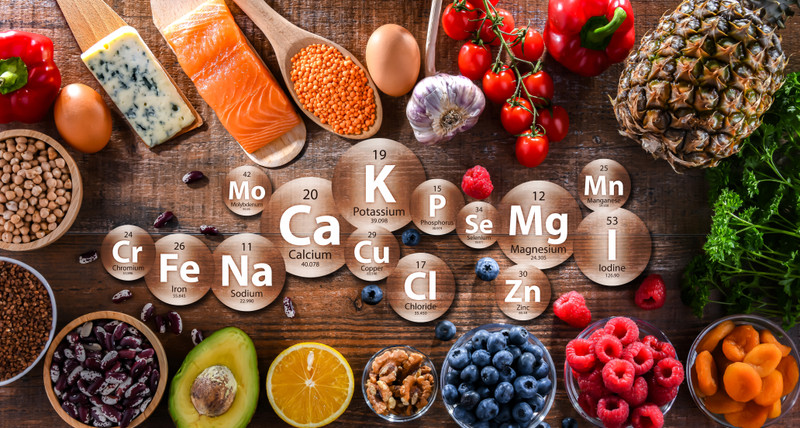When we think about essential nutrients, most people focus on the well-known vitamins and minerals like calcium, vitamin D, magnesium, or iron. But behind the scenes, a group of lesser-known nutrients called trace minerals plays a powerful role in keeping your body functioning at its best. These minerals are needed only in tiny amounts, yet they support major processes including metabolism, detoxification, hormone production, and energy balance.
Among the most important but commonly overlooked trace minerals are chromium and molybdenum, along with zinc, selenium, manganese, and copper. Many people fall short on these nutrients without realizing it, especially with modern diets that include processed foods or rely on mineral-depleted soil.
Here is why these minerals matter, how deficiency can affect your health, and where to find them through foods and supplements.
Chromium: Essential for Blood Sugar Control
Chromium plays a direct role in how your body handles glucose. It helps insulin transport sugar from your bloodstream into your cells, where it can be used for energy. Without enough chromium, this process becomes less efficient, leading to blood sugar swings, carb cravings, and low energy.
People with insulin resistance, prediabetes, or type 2 diabetes may especially benefit from healthy chromium intake. Research suggests chromium supplementation can support steadier blood sugar levels and may even help improve cholesterol profiles.
Food sources of chromium include: whole grains, broccoli, mushrooms, green beans, beef, and nuts. However, refined grains and processed foods lose much of their chromium during manufacturing, which is one reason deficiency is becoming more common.
Molybdenum: The Detoxification Workhorse
Molybdenum is one of the least talked-about minerals, yet it plays a central role in your body's natural detox pathways. It activates enzymes responsible for breaking down harmful substances like alcohol byproducts, sulfites, and environmental chemicals. Without enough molybdenum, your liver and kidneys may have to work harder to eliminate toxins.
Molybdenum is also necessary for the metabolism of sulfur-containing amino acids, which support cell repair, energy production, and antioxidant function.
Food sources of molybdenum include: lentils, beans, peas, whole grains, and nuts. Because soil mineral levels vary widely, you may not always get consistent amounts from food alone.
Zinc: Immune Support and Skin Healing
Zinc is a well-known trace mineral, yet many people still don’t get enough. It is essential for hundreds of enzyme reactions in the body, especially those involving immunity, hormone production, tissue repair, and skin health.
Low zinc levels can lead to weakened immune function, slow wound healing, dry skin, hair shedding, and even changes in taste or smell. Athletes, older adults, and people under chronic stress often need extra zinc.
Food sources of zinc include: pumpkin seeds, beef, chickpeas, seafood, and eggs.
Selenium: Antioxidant and Thyroid Protection
Selenium is a powerful antioxidant and a key component of enzymes that neutralize free radicals. It also plays a major role in thyroid hormone production and protects the thyroid gland from inflammation and oxidative stress.
Selenium deficiency has been linked to fatigue, thyroid imbalance, poor immune response, and cognitive changes. Since selenium content in soil varies drastically, food sources can be unreliable.
Food sources of selenium include: Brazil nuts, eggs, tuna, turkey, and sunflower seeds.
Copper: Energy Production and Connective Tissue Strength
Copper works together with iron to form red blood cells and maintain healthy circulation. It supports connective tissue formation, nerve function, and collagen synthesis. Both too little and too much copper can cause problems, so maintaining balance is important.
Copper deficiency may cause fatigue, anemia-like symptoms, bone weakness, and connective tissue issues.
Food sources of copper include: shellfish, nuts, seeds, whole grains, and dark chocolate.
Manganese: Metabolic and Antioxidant Support
Manganese is necessary for absorbing nutrients, metabolizing carbohydrates and fats, and producing collagen. It also activates antioxidant enzymes like superoxide dismutase, which protect your cells from oxidative damage.
Deficiency can affect bone formation, joint health, and overall metabolic wellness.
Food sources of manganese include: whole grains, leafy greens, nuts, and tea.
Why Trace Minerals Matter More Than You Think
Even though you need trace minerals in tiny amounts, they have an enormous impact on your health. These nutrients work behind the scenes to regulate energy, support hormone balance, protect cells from damage, and assist detoxification. They also help activate many vitamins, meaning you might not get the full benefit of your supplements without adequate trace minerals.
Modern diets, soil depletion, and food processing have made deficiencies more common than expected. Paying attention to these overlooked nutrients can make a noticeable difference in how you feel every day.
Including a variety of whole foods and, when needed, a high-quality mineral supplement can help you maintain the optimal balance your body depends on. Trace minerals may be small in quantity, but they are mighty in function—and keeping them at healthy levels is one of the smartest steps you can take for long-term wellness.

